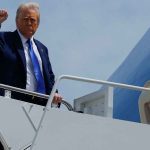At a time Iranian Foreign Minister Hossein Amir-Abdollahian is locking horns with the European Union (EU), in conjunction with the EU’s plans to impose a raft of sanctions on Tehran for its crackdown on the protests that rocked the country for two months, the Iranian regime senses it is being scrutinized. This has been evident in formal statements, which took an accusatory tone, pointing fingers at external actors who push the scene in that direction.
In a phone conversation with EU High Representative for Foreign Affairs and Security Policy Josep Borrell, Abdollahian stressed that “Iran is not a land of colorful or velvet coups”.
In the statement the Ministry of Foreign Affair, which came after a lengthy phone conversation between Abdollahian and Borrell, Abdollahian confirmed that “the death of Mahsa Amini is regrettable to Iranians”, calling on the EU to “look at the issue with a realistic approach”, in response to Josep Borrell’s statements on Friday that “people in Iran have the right to peaceful protest and to defend fundamental rights”, and that “violent repression must stop immediately and protesters must be released.”
This latest chapter of debates between the two sides clearly reflects their positions. Iran is still denying the “reality”, while calling on Europeans to look at the situation with a “realistic” approach.
Meanwhile, the international community fluctuates between making media statements and waving more sanctions on Iran, a country that excelled, at the sight of the international community, in taking paths that enable it to bypass the restrictive barriers. This was recently manifested in its ability to interfere with the Russo-Ukrainian war, by supplying Iranian-made weapons to Russia.
For that, the Iranian street moves firmly on its path, caring the least about the two sides, understanding their intentions, without declaring this publicly.
This external support was put to test during the 2009 Green Movement protests that swept the country in the wake of announcing President Ahmadinejad’s winning of a second term, where there were widespread accusations of rigging against the opposition candidates Mir Hossein Mousavi and Mahdi Karroubi. Hundreds of thousands took to the streets, raising the famous motto “Where’s my vote?”
From 9 June 2009 to the beginning of 2010, this movement spread among Iranians worldwide, winning the support of several international writers and artists.
Back then, the government did not care about the protests and ordered the police and the Basij forces to suppress the protests using extreme violence. Demonstrators were beaten, arrested, tortured, and in some cases shot.
These events said the final word about the possible return of the so-called reform movement within the regime, with Mohammed Khatami’s experience (1997-2005) quite fresh in the minds. Supporters of the movement thought that it could be restored through Mousavi and Karroubi.
The regime woke up quickly, realizing the need to corner the resurgence of these voices in the future. This has been evident in the years that followed Khatami’s term, where the most extremist elements close to the Supreme Guide were promoted, including primarily Mohammad Ali Jafari, Mohammad Baqer Qalibaf, and Qasem Soleimani, to control the Revolutionary Guards and the security services towards suppressing the emergence of any the reformist movements.
Iranians, at home and abroad, closely followed the responses and positions of international powers and the West on the events and came to realize that the West will not involve, at any time, in the overthrow of the Iranian regime. The furthest they could go is to criticize policies and exert pressure on it through the raucous media, capable of tarnishing reputation or making a racket of support here and there.
Responses of major powers are constrained by interests and balances that cause them to deal with the Iranian interior with due caution, contrary to their interactions with similar events in Arab and Asian countries, Russia, China, and even some Eastern European countries.
Strikingly, this time the Iranian interior didn’t laud the “mechanical statements” coming from Western capitals, solely depending on the major shake-up it could make, wagering that it alone is capable of making change.
In the second month of protests, protestors raised the slogan “the beginning of the end”, an optimistic slogan that could give rise to a new variable, bringing together different segments and spectra that show no fear of seeing deaths exceeding 100 people, let alone tens of thousands of injured.
For weeks, the Iranian authorities have widely blocked the Internet access to restrict connectivity between cities whose populations came out to the streets supporting one another, as has been the case with the protests that swept the streets of the northwestern city of Ardabil, in support of the merchants’ strike in Saqqaz, the birthplace of Mahsa Amini, that extended to the governorates of Kurdistan in the northwest and Mahabad in the north.
Notably, the protests received the support of the young age groups, including university and school students, who voiced their opinion by striking and setting fires in the streets, expressing dissatisfaction and distress with the regime, which is closely related to the state’s religious power.
The regime is clearly alarmed by these events, despite showing poise. The regime’s accusations against third parties of intervening in internal affairs receives no attention at home or abroad, with new generations seeking a better and more spacious homeland.











